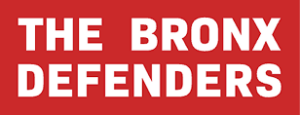The Bronx Defenders and BLOC Condemn the Rent Guidelines Board’s Vote to Increase Rents
Bronx, NY – The Bronx Defenders and the Bronx Leadership & Organizing Center (BLOC) issued the following statement in response to the Rent Guidelines Board’s vote on Monday to increase rents for rent-stabilized New Yorkers:
“For the fourth year in a row, Mayor Adams’ appointees to the Rent Guidelines Board (RGB) voted to raise rents on NYC’s rent stabilized tenants. The board’s vote not only fails to acknowledge the ongoing affordability crisis that tenants face but will almost certainly increase the threat and number of evictions for thousands of families living in the Bronx.
“Indeed, the people of the Bronx will, no doubt, bear the brunt of this decision. Bronx families are already rent burdened, facing the highest rates of eviction and the lowest rates of legal representation in housing court compared to the rest of the city.
“The increase comes despite overwhelming testimony from tenants and elected officials advocating for a rent freeze. Last month, over 100 Bronx tenants marched alongside BLOC to the Bronx RGB hearing to testify in support of a rent freeze. Still, the Board continues to ignore tenants, choosing to side with landlords as their revenue increased.
“Although the RGB chose to ignore our most vulnerable neighbors, we will not. We remain steadfast in our mission to provide the highest quality legal representation and community advocacy to the people and families of the Bronx.”
###
About Bronx Leadership & Organizing Center (BLOC)
Launched in 2022 as a partnership among The Bronx Defenders, East Side House and New Settlement, the Bronx Leadership & Organizing Center (BLOC) strives to stimulate the development of new solutions to sustainably lift families out of poverty and to promote dynamic leaders who will aim to change the public conversation around social and economic mobility.
About The Bronx Defenders
The Bronx Defenders is a public defender nonprofit in the Bronx that has developed a groundbreaking, holistic model of legal representation, providing systems-impacted individuals with teams of lawyers, social workers, and advocates dedicated to addressing their unique circumstances, radically transforming how low-income people are represented in the legal system.
